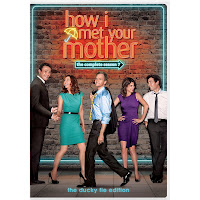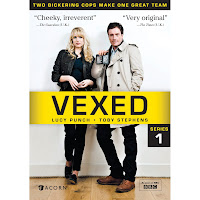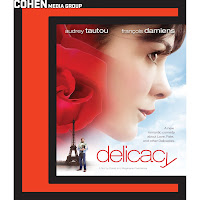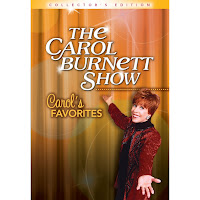the traveler's resource guide to festivals & films
a FestivalTravelNetwork.com site
part of Insider Media llc.
Film and the Arts
October '12 Digital Week I
- Details
- Parent Category: Film and the Arts
- Category: Reviews
- Published on Monday, 08 October 2012 05:00
- Written by Kevin Filipski
(Columbia)
Albert Finney and Carol Burnett are not up to their usual shining excellence (Burnett hams unfunnily, Finney tries too hard to be a musical comedy charmer, which he isn’t), 11-year-old Aileen Quinn is a decent Annie and there’s good support by Ann Reinking, Bernadette Peters and Geoffrey Holder. The Blu-ray image isn’t bad; extras include Quinn’s reminiscence.
(Disney)
The gloriously simple visuals are enhanced by hi-def, and if the extras leave something to be desired—featurettes, alternate opening, unneeded new short, Tangled Ever After—it’s the original film that counts.
Michelle Pfeiffer and Johnny Depp come off best; Eva Green, Jonny Lee Miller, Helena Bonham Carter and talented young Chloe Grace Moritz are wasted. Subtle color changes look terrific on Blu-ray; extras are featurettes and deleted scenes.
Moore and a blistering rhythm section tear through a dozen classic Hendrix tunes, from the opening “Purple Haze” to the encore “Voodoo Child (Slight Return),” which features Jimi’s bandmates Mitch Mitchell on drums and Billy Cox on bass. The hi-def image is clear, the surround sound audio is exemplary.
For those viewers who favor pulchritude, one of the most glamorous actresses I’ve ever seen, Chanokporn Sayoungkul, shows off her ample histrionic talents. The hi-def transfer is stunning; there’s an English language dub.
The prosthetic nose helps, but Nicholson plays Hoffa as a real man, not a “character,” and the film—whose epic scale is handled well by director Danny DeVito, who also decently enacts Hoffa’s right-hand man—is all the better for it, despite a draggy 140-minute running time. There’s a good hi-def transfer; extras include DeVito’s commentary, interviews, deleted scenes and DeVito’s 2011 Teamsters convention speech.
The dark, shadowy visuals have been faithfully transferred to Blu-ray; extras include interviews, featurettes, deleted scenes, audio commentary and gag reel.
As the movie marches to a predictably happy conclusion, the actors led by Pine, Michelle Pfeiffer (mom) and Elizabeth Banks, fantastic as his half-sister keep things percolating despite a morass of clichés. The Blu-ray image is quite good; extras include deleted scenes, gag reel, audio commentary and making-of featurette.
The guest star quotient is less interesting than the previous season: the likes of Kristen Wiig and Eddie Vedder don’t cut it. The hi-def image is solid; extras include featurettes, commentaries and director’s cuts of episodes.
Spiced up by formidable acting by Jackson, Tom Wilkinson as a chilling head gangster and Ruth Negga as the gal helping Jackson escape his former life, David Weaver’s movie is recommendable, even if it’s ultimately the same wine in new bottles. The hi-def image is excellent.
(Cinema Libre)
Beatles, director Seth Swirsky’s pet project, includes interviews with celebrities about their brush with greatness—meeting one or more of the Beatles. Aside from the usual suspects (producer George Martin and engineer George Smith), fond memories from the likes of Henry Winkler, Susanna Hoffs, Ben Kingsley and Art Garfunkel are included. Plymptoons extras are deleted scenes and featurettes; Beatles extras are additional interviews.
 Damsels in Distress
Damsels in Distress (Sony) Whit Stillman’s stillborn comedy, which follows obnoxious coeds who unfunnily act superior to everyone around them, are put on pedestals by Stillman, which makes them more annoying, while indie darling Greta Gerwig is quickly becoming a third-rate Chloe Sevigny.
If you love his films, your mileage may vary, but I sat glassy-eyed and slack-jawed during Barcelona, Last Days of Disco and Metropolitan, and find Stillman an instant cure for insomnia. Extras include a commentary, Q&A, deleted scenes, outtakes and a making-of featurette.
 Gossip Girl—Complete Season 5
Gossip Girl—Complete Season 5 (Warners) Stars Blake Lively and Leighton Meester—charming and personable throughout—have Manhattan and Hollywood covered in the 24 episodes of the series’ fifth season, which all have punning titles based on movies, e.g., Yes, Than Zero, G.G. and The Return of the Ring.
Extras include featurettes, deleted scenes and a gag reel.
(Warners)
Throughout the 22 episodes, Bilson contends with Southern stereotypes of the laziest sort; she’s adorable as always; Jobeth Williams and Nancy Travis and Tim Matheson and Jaime King compensate. Extras include gag reel, deleted scenes and interviews with cats and creators.
Hilarious cameos by Katie Holmes as the slutty pumpkin and Chris Elliott as Allyson’s father help. Extras include commentaries, deleted scenes, featurettes and a gag reel.
For anyone with an open mind, Wright explains our own complicity in the rise of fundamentalist terrorism, but only points fingers at those killing in the name of jihad.
(First Run)
Surviving is an eye-opening expose about our planet’s ability—and possible inability—to sustain life for billions of people. Both documentaries are, despite their explosive content, even-handed and sober explorations. Extras include interviews.
The music is negligible, but personality clashes provide priceless entertainment, and Bree Olson, the band’s porn star manager—and infamous paramour of Charlie Sheen—is a true on-camera star, and makes up for a loathsome cousin who becomes Tight’s assistant manager. Extras include videos, concert footage, and deleted scenes.
Although Lucy Punch and Toby Stephens have good back-and-forth chemistry, the show is otherwise routine, and efforts at clowning are more in bad taste than punchy black comedy. The first series comprises three episodes; Punch left after it finished, so Stephens gets another partner for the next season.
Hawke is fine in a bilingual role and Scott Thomas is always superb, but the movie—a mere 85 minutes—is less fully-realized than a barebones outline. The lone extra is a making-of featurette.
(ECM)
The two books of keyboard pieces, even more so than The Art of the Fugue and The Goldberg Variations, are a veritable encyclopedia of Bach’s easy mastery of different styles. Schiff plays with authority, and his balance of majestic sweep and intimate feel brings out these immortal works’ innate musicality.
Theater Roundup: "Enemy" on Broadway; "Red Dog," "Exonerated," "Detroit" Off Broadway
- Details
- Parent Category: Film and the Arts
- Category: Reviews
- Published on Tuesday, 02 October 2012 10:00
- Written by Kevin Filipski
An Enemy of the People
Henrik Ibsen's play
adapted by Rebecca Lenkiewicz
directed by Doug Hughes
Red Dog Howls
Written by Alexander Dinelaris
directed by Ken Rus Schmoll
The Exonerated
Written by Jessica Blank and Erik Jensen
directed by Bob Balaban
Detroit
Written by Lisa D’Amour
directed by Anne Kauffmann
Some of that is on display in the Manhattan Theatre Club’s new production, which is erratically directed by Doug Hughes and breathlessly enacted by a cast utilizing British playwright Rebecca Lenkiewicz’s crude adaptation.
Live Review: The Killers at the Paradise Theater
- Details
- Parent Category: Film and the Arts
- Category: Reviews
- Published on Monday, 01 October 2012 16:48
- Written by Abner Willis
 In years past, The Killers have taken on personas as gender-bending nightclub goers (their debut alum, Hot Fuss), dusty Americana underdogs (Sam’s Town), and glitzy Vegas showmen (Day & Age). They bring irony to their poses, and their newest is no different.
In years past, The Killers have taken on personas as gender-bending nightclub goers (their debut alum, Hot Fuss), dusty Americana underdogs (Sam’s Town), and glitzy Vegas showmen (Day & Age). They bring irony to their poses, and their newest is no different.
On September 18, 2012 The Killers were supporting their first album in five years – the triumphant Battle Born – and playing the role of World’s Biggest Band.
September '12 Digital Week V
- Details
- Parent Category: Film and the Arts
- Category: Reviews
- Published on Saturday, 29 September 2012 05:00
- Written by Kevin Filipski
Despite a few oddly enjoyable meals that the 3D effects present with a certain cleverness, the movie remains a dull, unfortunate example of “concept” beating a sense of decent filmmaking. The Blu-ray imagery maximizes the 3D effects.
Tautou does what she can, but the movie continually pulls her toward frolicsome Amelie territory, except it feels arbitrary. The hi-def image is excellent; extras include a Tautou interview and making-of featurette.
Even though it clocks in at a mere 78 minutes, this mystifying in-joke drags badly, and the brothers are played with little chemistry by Steve Zissis and Mark Kelly. Now that it’s out of their system, maybe the brothers can make something more interesting like Cyrus and Jeff Who Live at Home. The Blu-ray looks fine; extras include featurettes.
The acting, of course, is excellent; Joanna Kulig and Anais Demoustier are persuasive call girls, and Juliette Binoche brings her customary sensitivity and intelligence to the journalist. But despite much nudity, Elles is figuratively covered up. The hi-def transfer is good.
Footage of his abortive ‘80s solo projects, including his Barcelona collaboration with soprano Montserrat Caballe (also seen in interviews), doesn’t rehabilitate that aspect of his career, but it’s good of Thomas to show the opposite of the gazillion-selling Queen empire. The Blu-ray image is first-rate, despite vintage footage. Extras include a Mercury interview, Caballe interview and Barcelona making-of.
This important glimpse of an artist at work also shows him as an engaging if occasionally distant presence: when Belz gets him to discuss his life briefly humanize a man most see in the abstract. On Blu-ray, the colors of Richter’s paintings pop off the screen amazingly; extras are a Richter interview and views of his exhibitions.
Lisa was so bizarre that it was reshot (with Robert Alda as a priest) and recut into Exorcism, less satisfying but deeply disturbing in its own right. The films retain their graininess on Blu-ray; all three features have commentaries and there’s a Bava interview on the Lisa/House disc.
The 23 episodes contain enough action thrills for unfinicky fans, but there’s a spark missing among the cast that was never an issue during the Jack Lord-James MacArthur days. The Blu-ray image is superb; extras include deleted scenes, featurettes, audio commentaries, the ever-present gag reel and a crossover NCIS: Los Angeles episode.
Although it’s great that all six features are finally available on Blu-ray, the hi-def transfers are not up to par, with too much digital noise reduction disappointing fans.
Although it’s not as outright ugly as Robert Zemeckis’s performance-capture flicks (Polar Express, Beowulf), the facial and movement “fakery” is a deal-breaker: just as Pixar’s cartoons do little for me, so do CG films, technically accomplished as they are. If it’s in your wheelhouse, however, go for it. The Blu-ray image is good; extras include making-of featurettes and a gag reel.
This five-disc set collects several of the star’s favorite episodes, which include guest stars Steve Martin, Joan Rivers, Betty White and Maggie Smith, for starters. The episodes are complemented by choice extras, like a reunion of Lyle, Vicki, Tim and Carol (Harvey, unfortunately, died in 2008).
New York’s season opener about the 10th anniversary of Sept. 11 has powerful writing and acting. Extras on all three sets include deleted scenes and featurettes; Miami and CSI include commentaries; Miami and New York include gag reels.
Eva Mendes, who plays Mom with a single-minded intensity laced with humor, gives her best movie performance. And young Cierra Ramirez, as the daughter who’s 15 going on 30, is a real find: so natural and unaffected, she’s definitely someone to watch. The lone extra is a making-of featurette.
Parker herself is always engaging, even when enraged, and Demme presents her story with the sympathetic eye marking his best work like Melvin and Howard and Married to the Mob. Extras include a Demme interview and commentary.
The literal title, Gianni and His Women, was changed to become more universal, although the original title works better as ironic commentary. Extras include a Di Gregorio interview and on-set footage.
This recording—by the Royal Liverpool Philharmonic Orchestra under Paul Mann’s baton—is an all-star affair, with Iron Maiden’s Bruce Dickinson on vocals, all-star session man Guy Pratt on bass, guitar parts played by Darin Vasilev, Jon Bonnamassa and Steve Morse, and Lord himself as organist. The 45-minute wayward work goes on too long but remains a listenable mash-up of rock and orchestral music.
More Articles...
Newsletter Sign Up










































